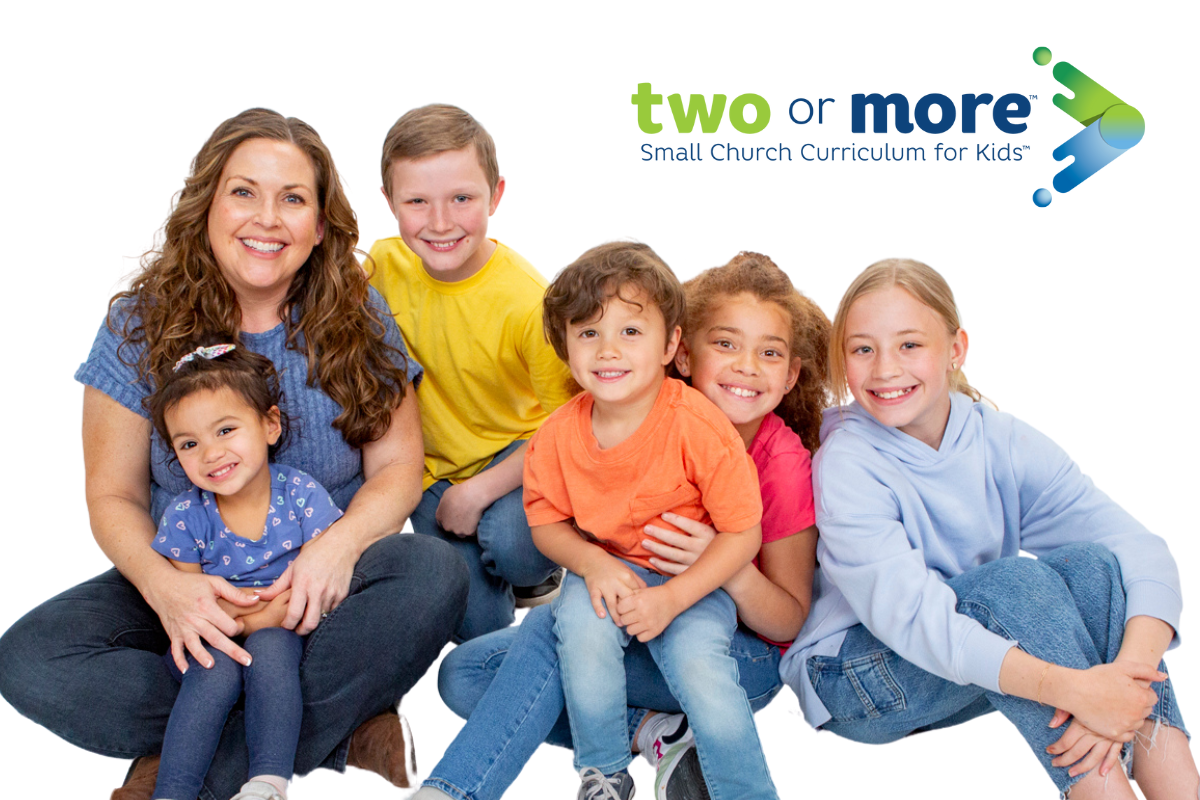Written by Ali Thompson, Executive Editor at Group Publishing. This is a paid partnership.
Churches come in all shapes and sizes. That’s an amazing thing about the diversity of the body of Christ! Some people want the high-tech productions that are easier to pull off in a large church. But others want the relational connection that’s easier to find in a small church!
Laurie Graham of Small Church Ministry often says, “small isn’t less, it’s different.” That’s so true! Sometimes small churches are challenged with the task of growing bigger and may feel like they’re failing or they’re not as important if they stay small.
If that’s been your mindset, we want to encourage you! Small churches are not only a valuable part of the Church, but they also have unique things to offer that are much harder for big churches to pull off! Here are the top three reasons it’s great to be a small church.
Number 1: Small Churches Can Know Everyone
I’ve been part of many large churches. And let me tell you something: they’re secretly trying to be smaller.
No, they’re not trying to kick people out. But they’re trying to form smaller groups because that’s where community happens. Small groups can be valuable at any church, but they become essential at a large church because otherwise it’s too easy to go to church every week and not have anyone know your name.
I’ve also been part of and visited small churches. Churches where people noticed me the very first week I go—and welcomed me enthusiastically. Where people introduced themselves to me and learned my name right away.
I remember one small church I visited for the first time, and they were having a potluck picnic after church that day. At least three people personally invited me to join the picnic and sit with them. So I joined and got to begin to form relationships on my very first day at the church.

It’s easy to get focused on the things you can’t do like the big churches. Maybe you wish you could have the technology or big productions that the large church down the street. But remember: the large church down the street is also breaking into smaller groups so they can be more like you.
Because the greatest desire for people is to feel known, seen, and loved. That’s more important than a top-notch stage production! And it’s something you, as a small church, are uniquely positioned to offer.
You can know the name of every child in your children’s ministry. You can notice when someone doesn’t show up, and reach out to them to check in on them. Those are amazing, incredible advantages to being a small church!
Number 2: Small Churches Are Better Positioned to Invest and See Growth
There’s more than one way to measure growth. The obvious one, the one most people tend to focus on, is attendance. How many people come to your church on a weekly basis? How many kids are in your children’s ministry?
It’s not that those numbers don’t matter. Jesus wants us to reach the world with the gospel message.
But the Bible also calls us to move people past watered-down faith, beyond the basics, and from spiritual milk and onto spiritual meat (Hebrews 5:11-14).
God can use any sized church to help people grow in their faith. But as a small church, you’re better positioned to see that growth in your community. When you have just a few kids who come regularly, you can more easily watch them grow.
You’ll know when they commit their lives to Jesus. You’ll hear from them about the things they’re reading in their Bibles. You’ll see them reflect more and more of the fruits of the Spirit. You’ll see their spiritual gifts coming out. You’ll know how to pray for them personally. And you’ll be better positioned to help them grow in their blind spots.
Don’t underestimate that kind of growth! Jesus’ parable of the sower (Matthew 13:1-23) shows us it’s the depth of the roots, not the number of seeds scattered, that ultimately leads to fruit.
Number 3: Small Churches Can Be More Flexible
It’s been said that big ships turn slow. Big churches can change, grow, and add new ministries—but there are a lot of hands that get involved and it can be a slow process.
Small churches can be more nimble and flexible. Do you see the need in your community for after school care? You’ll be able to set that up as an outreach program a lot faster than a big church could.
I heard about three small churches (all different denominations) who partnered together to offer a VBS for their community. One church had a larger space and more kids, another had a great location for signage to advertise the VBS to the community, and the third had a lot of teenagers who were eager to serve. By working together, these churches accomplished something none had the resources to do alone—and created a beautiful picture of God’s people working together in unity.

There are a lot more politics at big churches that would make such a partnership a lot more difficult to form. A big church already has a lot of proverbial cooks in the kitchen, so partnering with another church would add more voices, and more potential for conflict.
It’s not to say that big churches can’t make sure people who come feel seen and known, or invest in the spiritual growth of its members, or find ways to partner with other churches. It’s just that these things take a lot more strategic intention and effort at a large church and come more naturally to you as a small church.
Bottom line: small churches have a lot to offer! That’s why we think it’s important to provide resources that are designed just for unique needs and strengths. Two or More is a Sunday School curriculum for kids that specifically and intentionally designed to maximize the opportunities and gifts of the small church. Check it out today!

About Ali
Ali Thompson is an Executive Editor at Group Publishing. As a student at Wheaton College, Ali felt strongly called to pursue Sunday School curriculum development, so she majored in Christian Formation and Ministry. She now enjoys working on exciting children’s ministry curriculum including DIG IN and Two or More, plus Group’s VBS!






